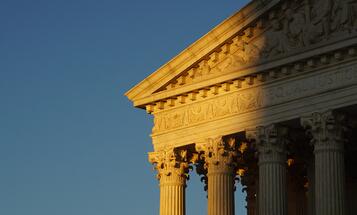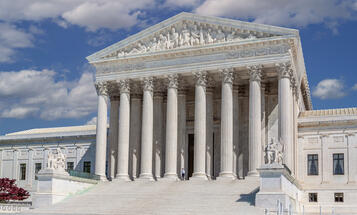
D.C. Should Join the 27 States and Cities That Empower Small Donors and Curb the Power of Big-Money Politics
Anyone who pays attention to Washington D.C.’s local politics can tell you that the city is long overdue for meaningful campaign finance reform. In the past few months alone, the District has been rattled by multiple scandals involving the flagrant misuse of campaign money by sitting elected officials.
While these and past scandals have attracted much-needed scrutiny to bad choices made by individual officials and candidates, there’s rarely discussion about the underlying political condition that fosters these bad choices. The overarching problem here is the outsized role that big money plays in D.C. (and American) politics—and how that perpetuates inequality.
As community organizer and D.C. resident Lourdes Ashley Hunter of the Trans Women of Color Collective recently put it at a public gathering of democracy activists at the St. Stephen and the Incarnation Church, “what’s important here in Washington, DC…when we’re talking about politics: people who have access to money are the ones who control the politics.”
This leaves communities with less access to wealth, including generational wealth, hugely underrepresented in politics. In D.C., this plays out in the form of gentrification, skyrocketing rents and displacement of people of color—among other crucial problems.
This isn’t just a D.C. phenomenon. In federal, state and local elections across the country, large donors determine who runs for office, who wins elections, and what issues get attention from elected officials. Candidates have to raise large amounts of money from wealthy individuals and corporations in order to have a chance at winning. These big donors and spenders aren’t reflective of the diversity of constituents— they’re more likely to be white and male, and they have starkly different priorities when it comes to core economic issues.
In this big-money system, there’s little to no incentive to cater to the needs of even average voters—and still less incentive to prioritize the needs of communities most marginalized by systems of oppression.
The good news is that across the country more than 27 states, cities, counties and municipalities have significantly curbed the influence of big-money politics by empowering people who can contribute a few dollars but cannot afford to throw down thousands of dollars. The research shows that matching small donations with public funds to increase their impact strengthens democracy. Public financing programs have successfully diversified the gender, racial and class composition of candidates’ donor bases, and have the potential to help Americans of all backgrounds make their voices heard and limit the influence of big money.
Tomorrow, the D.C. Council’s Judiciary Committee will hold a public hearing on the Fair Elections Act of 2017, which would establish a program for public financing of city elections. The Fair Elections Act would ensure that candidates could afford to run for office by relying on D.C. residents to fund their campaigns, rather turning to wealthy individuals and corporations.
As residents of Washington D.C., we are already deprived of a voice in federal politics. The time for D.C. residents to have a meaningful voice in local elections is long overdue. The Council would be wise to pass this much-needed legislation to reduce the influence of big-money politics and empower local community members.



